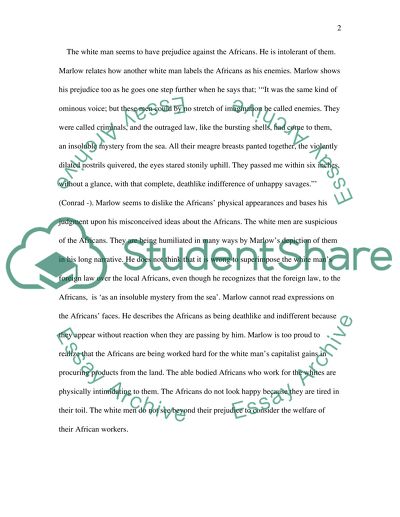Cite this document
(“Africans in Joseph Conrads Heart Of Darkness Book Report/Review”, n.d.)
Retrieved de https://studentshare.org/literature/1518626-africans-in-joseph-conrads-heart-of-darkness
Retrieved de https://studentshare.org/literature/1518626-africans-in-joseph-conrads-heart-of-darkness
(Africans in Joseph Conrads Heart Of Darkness Book Report/Review)
https://studentshare.org/literature/1518626-africans-in-joseph-conrads-heart-of-darkness.
https://studentshare.org/literature/1518626-africans-in-joseph-conrads-heart-of-darkness.
“Africans in Joseph Conrads Heart Of Darkness Book Report/Review”, n.d. https://studentshare.org/literature/1518626-africans-in-joseph-conrads-heart-of-darkness.


